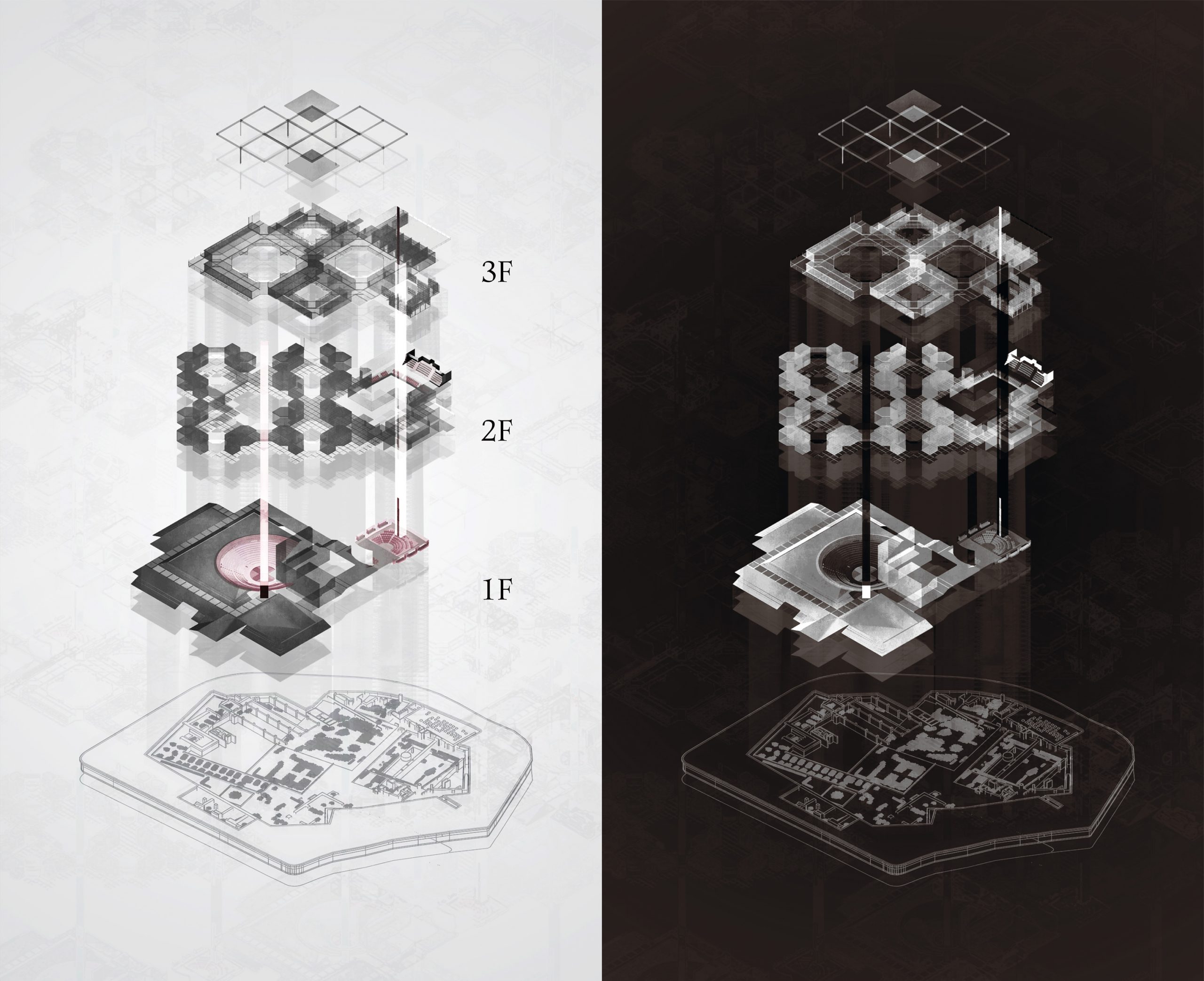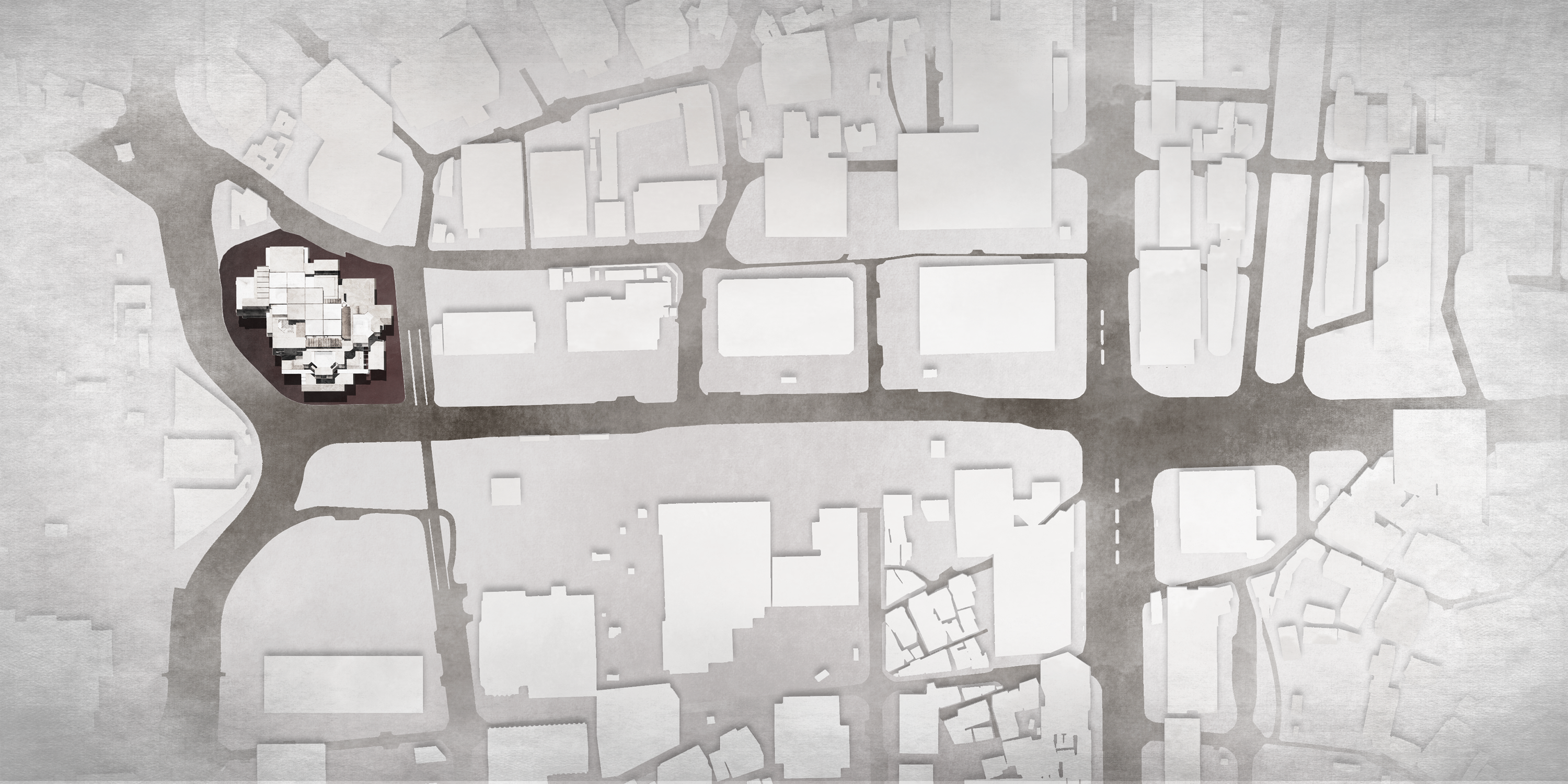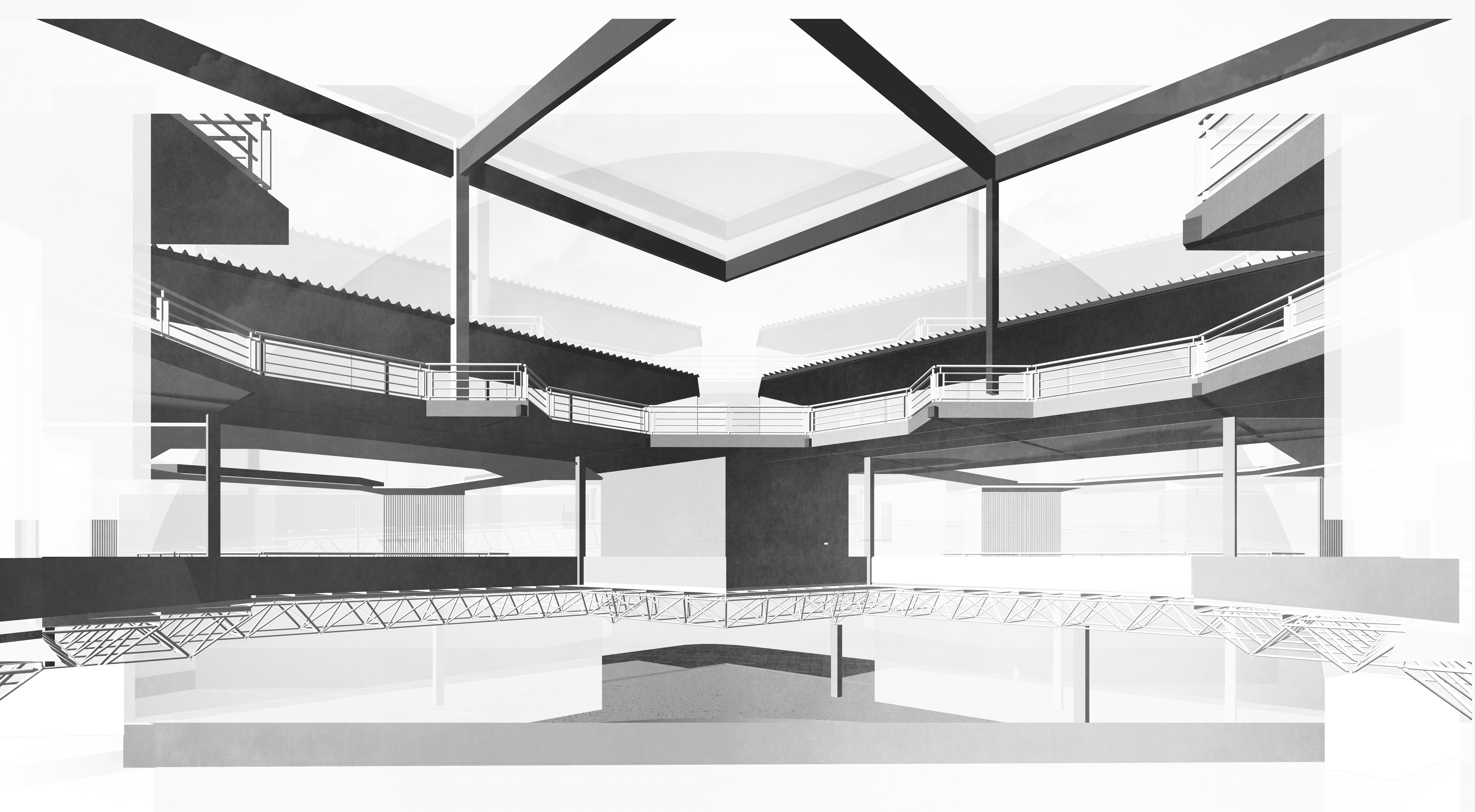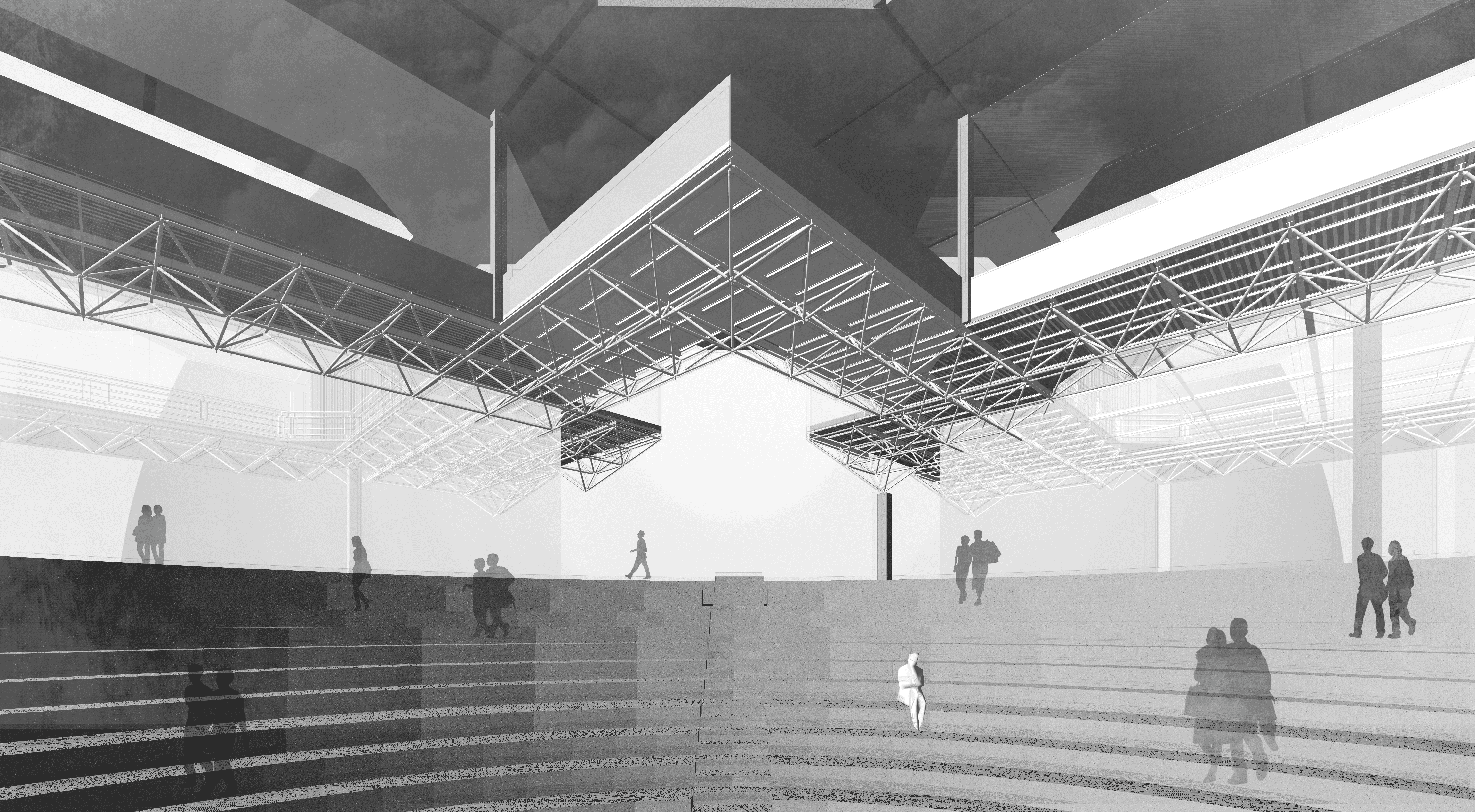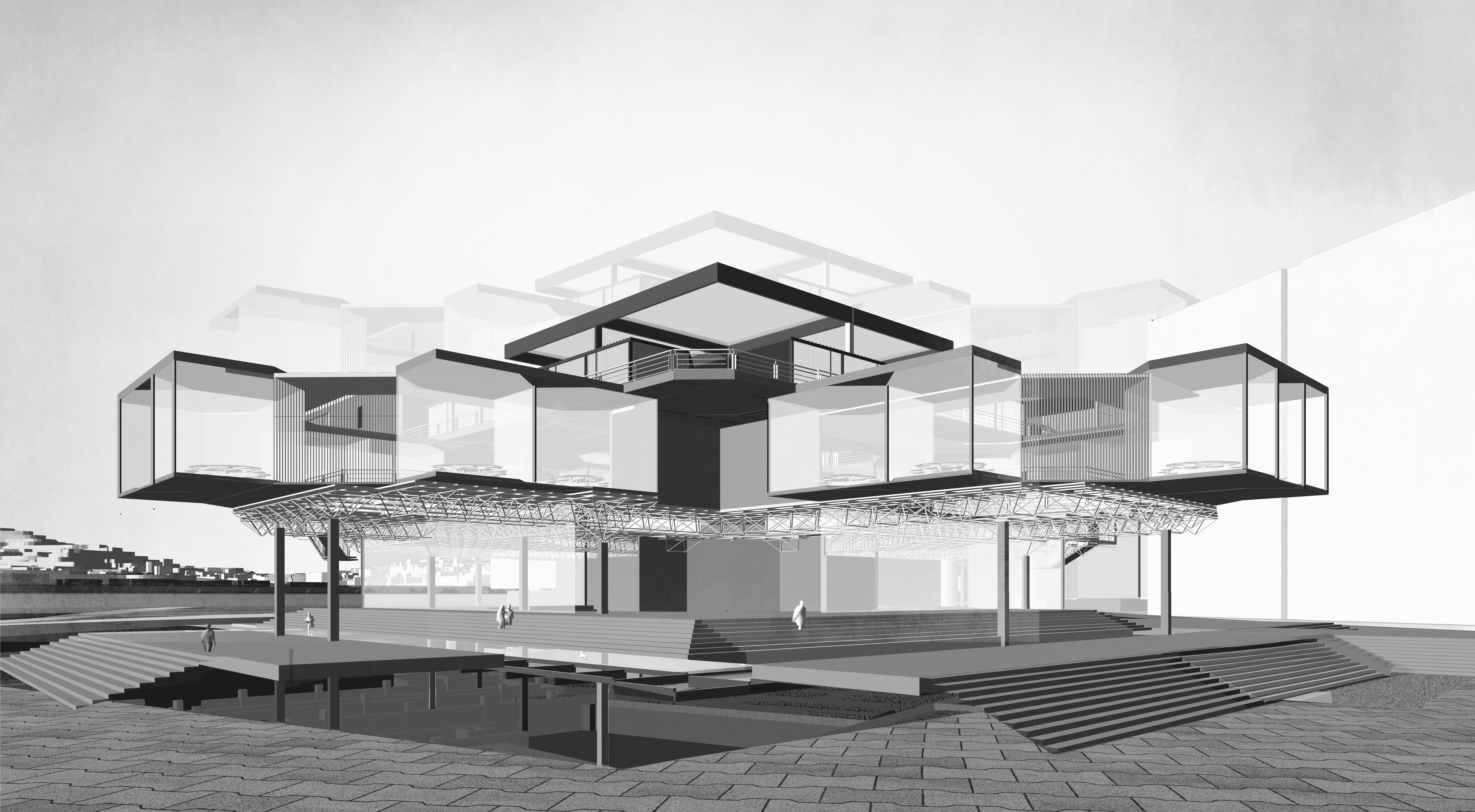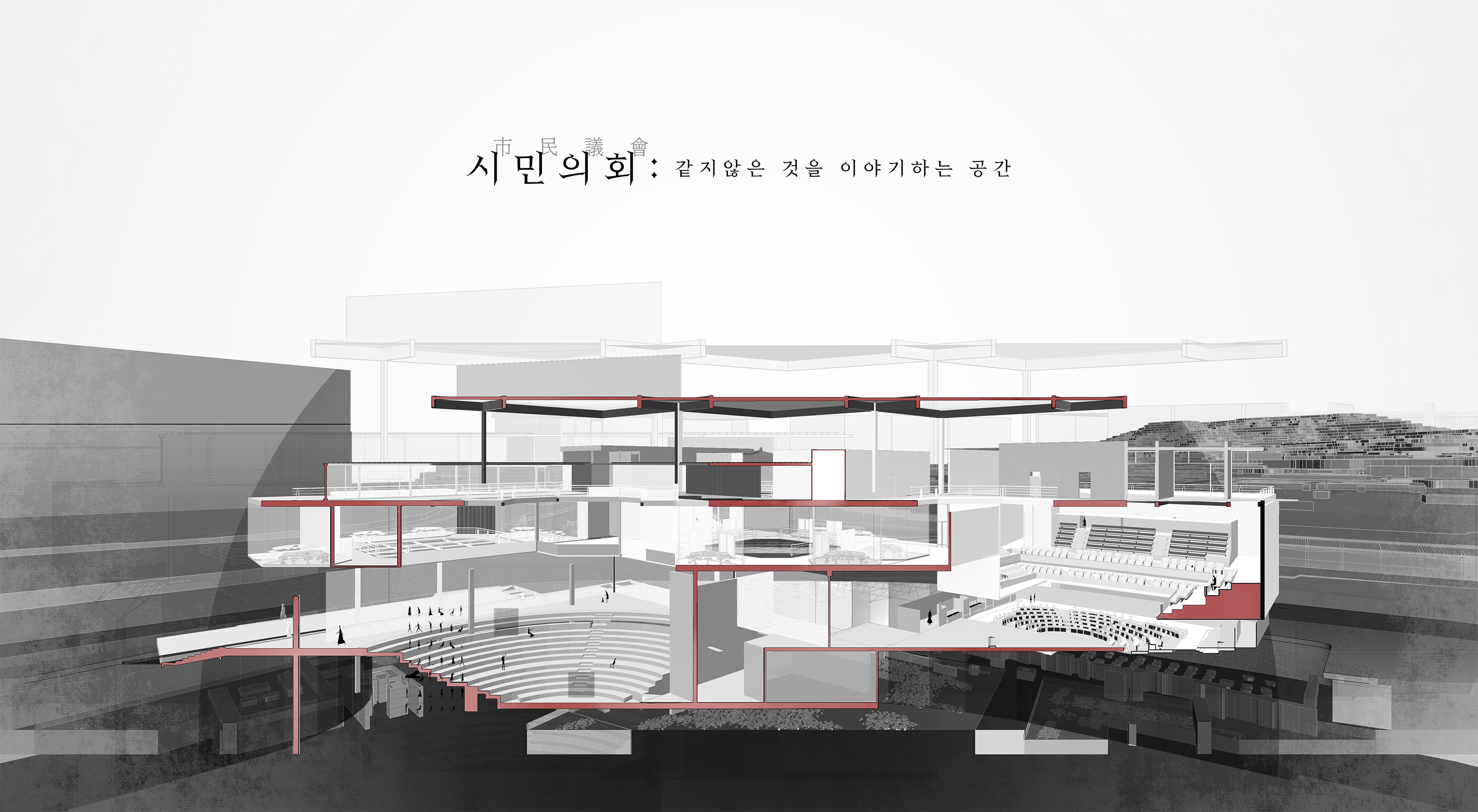정유진_Citizens on Municipality
시민의회, 다름을 마주하는 공간
1. 들어가며
살아있는 것은 멈추는 법이 없다. 사회를 구성하는 시민들은 계속하여 자신들의 삶을 살아가고, 그 안에서 각자의 어려움을 마주하며, 그러한 어려움이 사회제도적 차원에서 해결될 수 있을 것이라는 기대를 품고 의사형성과정에 참여할 때 정치는 비로소 의미를 가진다. 이때 사회문제의 해결이란 기본적으로 다각적 고려를 요하고, 이 과정에서 사회 각층의 목소리를 적절히 조율하여 반영하는 것이 본래 대의민주주의 체제 하에서 의회의 역할이다. 오늘날의 제도권 정치가 마주한 위기는 의회가 이러한 역할을 제대로 수행하는지에 대한 시민사회의 근본적 회의감을 토대로 한다. 대표의 위기(the crisis of representation)는 민주주의 자체의 위기와는 구별되는 것으로, 선거를 통해 선발된 국민의 대표들이 국민의 선호를 제대로 대표·실현하지 못함에 따라 정치인에 대한 신뢰 하락, 관심 감소를 넘어서 정치 혐오로까지 번지는 현상을 폭넓게 이른다. 22대 국회 투표율은 67%로, 역대 최고 수준이라는 21대 국회 투표율인 66.2%를 넘어선 수준이었다. 높은 투표율은 국민의 높은 의사표출의지를 의미한다. 이례적으로 높은 투표율을 해석하는 입장은 여러 가지가 있으나 투표용지는 말을 하지 않으므로 우리가 확실히 알 수 있는 것은 국민의 의사표출의지 그 자체일 뿐이다.
2. 참여의지가 충분하다면 무엇이 문제인가
먼저, 40세 미만의 청년의원이 부족하다. 중앙선거관리위원회에 따르면 제22대 총선의 주요 공약으로 거대 양당 모두 청년·저출생 정책을 내놓았지만, 정작 공천 결과에서 2030후보를 찾아보기 힘들고, 망 사용료, 비트코인 등 2030 간에 대두되는 문제에 대한 정치적 언급이 부족하다. 2023 국제의회연맹(International Parliament Union) 보고서에 따르면 대한민국의 40세 미만 청년 의원 수는 155개국 중 142위로 최하위 수준인 3.7% (평균 18.8%)에 불과하다. 한편, 공론(公論)의 장 또한 부족하다. 시민들이 특정 정책이나 사회적 이슈에 대한 다른 시민들의 선호를 파악할 수 있는 경로는 주로 언론과 SNS, 온라인 커뮤니티이며, 언론의 경우 일방향적 정보전달에 대해 독자가 댓글 등으로 의견을 표명할 수 있으나, 언론 전반에 대한 낮은 신뢰도가 꾸준히 지적되어왔다. SNS나 온라인 커뮤니티의 경우 정보 자체의 진실성을 담보하기 어려우며, 공통적으로 양자 모두 확증편향의 위험을 내포하고 있다는 점에서 한계를 가진다. 다양한 의견이 직접 마주하고 교류할 장의 부재는 다시 시민의 선호에 대한 부정확하고 편향된 시각으로 이어질 위험이 있다.
3. 시민의회의 도입
이에, 정치과정의 문호를 일반 시민들에게 넓게 개방하여 숙의와 토론을 거듭하여 판단을 도출해내는 공간을 구성하고자 하였다. 해당 공간에서 시민들은 특정 주제에 대해 하나의 입장을 선택하여 그 논거를 제시하고, 토론을 할 수 있다. 구체적인 작동시스템은 다음과 같다. 1. 의제선정: 사회 각층의 견해 대립이 예상되는 의제를 선정한다. 2. 표본선발: 1년 이상 참여할 표본을 최대 100명 선발한다. 3. 이야기 ‘이야기’는 크게 { 듣기 - 그룹핑(grouping) - 토론 }의 3단계로 나누어 실행된다. 1단계인 듣기 단계에서는 해당 문제의 당사자, 주변인, 해당 문제를 다루는 현 제도·정책과 관련하여 국가 측 대변인의 이야기를 듣는다. 이 과정에서 의제의 내용을 구체화하고 논의의 범위를 한정한다. 2단계인 그룹핑 단계에서는 1단계의 의제와 관련하여 상이한 의견을 가진 ‘미니공중’을 구성하여 최대 5개의 집단으로 구성한다. 이때 다양한 사회구성원과의 직접접촉이 가능하도록 한다. 3단계인 토론 단계에서는 토론장에 입장하여 의제에 대한 토론을 하고, 각 토론장에서는 약 1년의 기간 동안 토론을 거듭하여 본회의 의결을 도출한다.
4. 나가며
행복한 가정은 모두 비슷하게 닮아있으나, 불행한 가정은 저마다의 이유로 불행하다.
- 안나 카레니나, 톨스토이 -
민주주의도 마찬가지이다. 어떤 제도를 택하였든 간에, 성공한 민주주의는 반드시 다양성을 포용하고, ‘다름’ 간 대화의 시도가 끊이지 않으며, 뜨거운 열기로 대안을 도출한다. 대의제 하에서 의회는 그러한 대안 도출의 장이지만, 현실적인 문제로 인해 그 기능에 대한 회의가 제기되어 왔다. 이러한 상황 하에서 시민의회는 대의제와 시민사회 간 중간지대로서 양 영역을 오가는 상호작용의 장이 될 수 있을 것이다. 즉, 시민의회는 기성 정치인들이 생각지 못한 숨은 의제를 발굴하는 데 기여할 수 있으며, 나아가 도출된 결과물이 의회, 정당, 행정부 등에 간접적 영향력을 행사할 수 있을 것이다. 뿐만 아니라, 모든 시민들에게 정치교육 및 정당활동의 경험을 제공하고, 그 과정에서 자신과 다른 의견을 가진 자들과의 토론 경험을 통해 장기적으로는 사회적 의제에 대한 합의된 결론을 이끌어내는 토대가 될 수 있을 것이다. 다름을 적대시하는 독단적 민주주의가 아닌, 다름을 포용하고 그로써 더 풍부하고 깊은 논의를 가능케 하는 민주주의의 장을 상상하며 본 작을 완성하였다.
Citizens' on Municipality, a place to face differences
1. Introduction
Living never stops. Politics becomes meaningful when citizens who make up a society continue to live their lives, face their own difficulties, and participate in the decision-making process with the expectation that these difficulties can be resolved at the social and institutional level. Solving social problems requires multifaceted considerations, and it is the role of parliament in a representative democracy to properly coordinate and reflect the voices of all segments of society in this process. The crisis facing institutional politics today is based on civil society's fundamental skepticism about whether parliaments are fulfilling this role. The crisis of representation, which is distinct from the crisis of democracy itself, is a broader phenomenon in which the people's elected representatives fail to adequately represent and realize the preferences of the people, leading to a decline in trust in politicians, a decline in interest, and even an aversion to politics. The 22nd National Assembly had a voter turnout of 67%, surpassing the previous record of 66.2% in the 21st National Assembly. High voter turnout indicates a high willingness of the people to express their opinions. There are many ways to interpret this unusually high turnout, but since ballots don't speak, the only thing we can know for sure is the will of the people.
2. If there is enough will to participate, what is the problem?
First, there is a lack of young lawmakers under the age of 40. According to the National Election Commission, both major parties have put forward youth and low birthrate policies as their main pledges for the 22nd general election, but there are no 2030 candidates in the nomination results, and there is a lack of political references to issues that will be relevant to 2030, such as network fees and bitcoin. According to the 2023 International Parliamentary Union report, South Korea ranks 142nd out of 155 countries in the number of young lawmakers under the age of 40, with only 3.7% (average 18.8%). There is also a lack of public debate. The main channels through which citizens can learn about the preferences of other citizens on certain policies or social issues are the media, social media, and online communities. In the case of the media, readers can express their opinions through comments, but low trust in the media as a whole has been consistently noted. In the case of SNS and online communities, it is difficult to guarantee the truthfulness of the information itself, and both are limited by the risk of confirmation bias. The lack of a place where diverse opinions can be exchanged face-to-face risks leading to an inaccurate and biased view of citizens' preferences.
3. Introducing Citizens' Assemblies
In order to open up the political process to the general public, we wanted to create a space where judgments can be made through deliberation and discussion. In this space, citizens can choose a position on a specific topic, present their arguments, and debate. The specific operating system is as follows 1. Agenda selection: Select an agenda that is expected to generate conflicting views from all walks of life. 2. Sample selection: Select a sample of up to 100 people who will participate for more than a year. 3. Talking The 'talking' process is divided into three stages: listening, grouping, and discussion. In the first step, listening, participants will hear from the parties involved in the issue, people around them, and national spokespersons regarding the current system and policies dealing with the issue. This process helps to refine the content of the agenda and define the scope of the discussion. In the second step, grouping, we organize "mini-publics" with different opinions on the agenda from step 1 into up to five groups. This allows for direct contact with different members of society. In the third stage, the debate stage, the participants enter the debate hall to discuss the agenda, and each debate hall has a period of about one year to come up with a plenary decision.
4. Exit
Happy families all look alike, but unhappy families are unhappy for their own reasons. Anna Karenina, Tolstoy. The same is true of democracy. Regardless of the system chosen, successful democracies embrace diversity, are open to dialog among "the other," and generate alternatives with enthusiasm. Under representative democracy, parliaments are the venue for such alternative formulations, but practical issues have raised doubts about their functioning. Under these circumstances, citizens' councils can be a middle ground between the representative system and civil society, a place of interaction between the two spheres. Citizens' councils can contribute to the discovery of hidden agendas that established politicians have not thought of, and their findings can indirectly influence parliaments, political parties, and the executive branch. In addition, they can provide all citizens with the experience of political education and political party activities, and in the process, the experience of debating with those who have different opinions from their own, which in the long run can be the basis for reaching consensual conclusions on the social agenda. I finished this book by imagining a democracy that embraces differences and enables richer and deeper discussions, rather than a dogmatic democracy that antagonizes differences.
